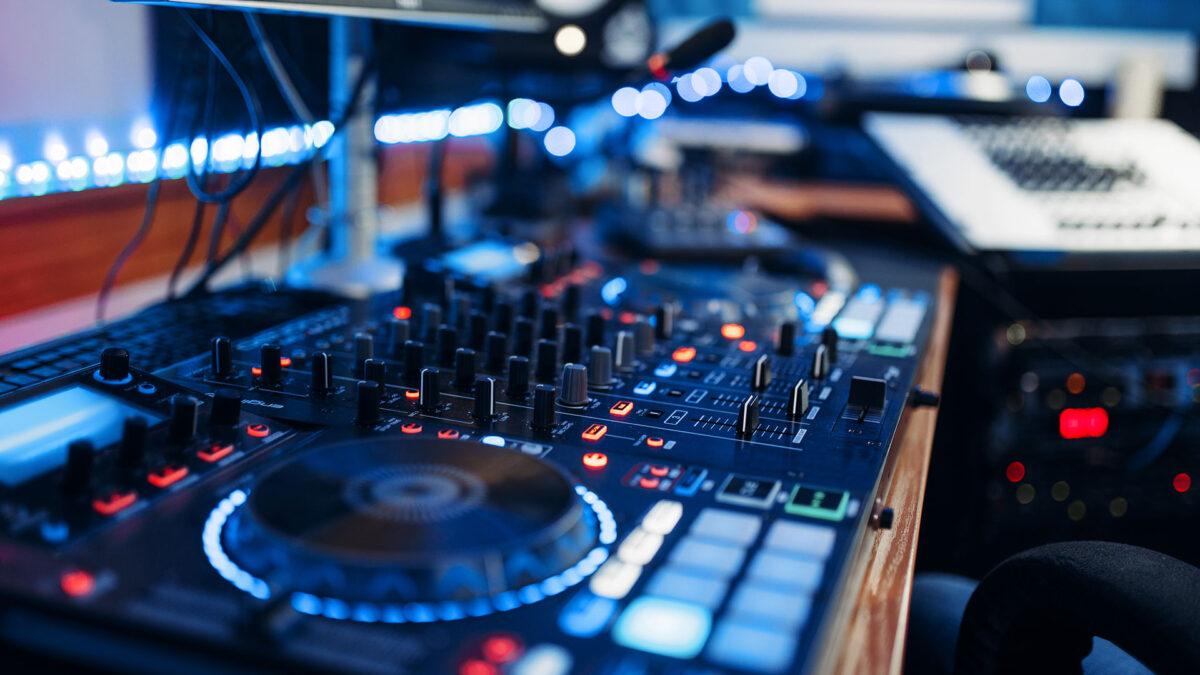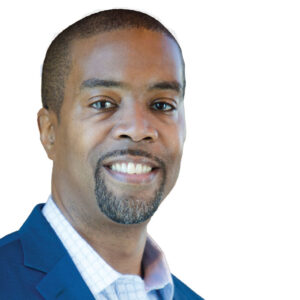
Embracing the Calling: Black Male Educators’ Impact and Responsibility
September 26, 2023
An Island View of a Long Gone Day
November 7, 2023by Kenneth M. Smith
We’re a few years out of the lockdown of the pandemic. A new school year is underway, but something still feels awry with my students. As I’m sitting here retooling my lesson plans, I’m struggling with feelings of doubt and frustration trying to figure out how to keep my students engaged. In this post pandemic lockdown world, my students seem less interested in material that pre-pandemic would get them charged. I find myself constantly questioning the content of the curriculum and figuring out what really matters to their worlds in this environment? I decided to take a walk and listen to an old episode of one of my favorite podcasts – The People’s Party, with Talib Kweli. He’s interviewing D Smoke, the winner of Netflix’s reality hip-hop contest “Rhythm and Flow.” At this point, Smoke is an established artist, but at the time of this interview, he was relatively new on the scene. His debut album, “Black Habits” was described by one critic as “a duality of love and fight, a nod to both Martin Luther King and Malcolm X at its core…D Smoke doesn’t gloss over his purpose on this album; he delivers his message with such vigor and power that, regardless of race, you want to listen” – and I agree, the album is dope. But this is not a review of his album, nor a discussion of his lyrical prowess. Rather it’s a nod to his other profession, that of an educator.
The Rap Teacher Crew
Before his break in the music industry, Smoke was a Spanish and Music Theory teacher at Inglewood High School in Los Angeles, California. During the interview, Kweli rattles off a host of hip-hop artists whose roots were grounded in education, either by association or were actual teachers themselves. Kweli states, “My brother is a teacher, his wife’s a teacher, Common’s mom’s a teacher, Kanye West’s mom, rest in peace, Donda West, was a teacher. Rap teachers: Defari, Bun B, J-Live, Sadat X, 9th Wonder…D Smoke. This is a great club to be in: “The Rap Teacher Crew.” Smoke’s response was heart felt: a simple and calm… “Ooh, this is an amazing club to be in.” But it wasn’t just what he said, it was how he said it. His emphasis on the word, amazing. Though I’m listening to the interview, I can almost see Smoke leaning in, drawn into Kweli’s words. When Smoke drags out the word “amazing,” you can feel that he was not only sincere in his response, but he honored to be associated with such an astounding group of hip-hop educators. For me, it was comforting to hear his admiration for those hip-hop educators who came before him. But what really captured my attention was his response to Kweli’s next question, “What unique issues do teachers of color face when dealing with marginalized communities?” Without hesitation, as if he’d been waiting a lifetime for this question, Smoke replies, “Teachers of color are not primarily there to teach, they are there to alter paradigms.” As I was walking, I stopped in my tracks. I hit the 15-second rewind button to hear it again… “alter paradigms.” I needed to reflect and soak up the gravity of those words.
Altering Students’ Paradigms
For me, this statement was fitting coming from a hip-hop artist, because it was hip-hop culture that was instrumental in my decision to become an educator. It was the culture that changed my paradigm of what education could and should be. Education is a second career for me, but hip-hop culture made me realize that as a career, teaching was always my first love, even before I actually knew it. It’s become a cliche to hear teachers say that this profession is a calling, but for me this truly resonates. Hearing D Smoke utter those words, “alter paradigms” helped me to refocus my purpose. I’m a veteran educator and I’m currently more reflective in my practice than I’ve ever been. Altering the paradigms of my students has always been central to my pedagogy – I just never named it as such. The seeds of being an educator were planted way back in 1989, long before I made the formal transition into education as a profession. It was when I first heard KRS-One, “The “Teacher,” spit lyrics in his song, You Must Learn:
“Let me demonstrate the force of knowledge–
Knowledge reigned supreme
The ignorant is ripped to smithereens…
What do you mean when you say I’m rebellious
Cause I don’t accept everything that you’re telling us
Teach the student what needs to be taught
Cause Black and White kids both take shorts
When one doesn’t know about the other one’s culture
Ignorance swoops down like a vulture”
These lines began the journey of me altering my personal paradigm of what education should encompass.
Kweli’s question was insightful and necessary. Smoke’s response, simple but telling. However, both question and response were somewhat incomplete. As their conversation continued, the weight of Smoke’s response weighed heavy on me because it was personal. It’s of utmost importance that my students learn academic content and the academic skills necessary to access and utilize that material in their lives. But as a teacher of color, particularly when I have students of color sitting before me, it’s just as important to “alter paradigms.” A paradigm is a set of assumptions, theories and perspectives that make up a way of understanding social realities. They function as a lens through which one sees and experiences the world. D Smoke goes on to say that “losing paradigms, misled, misinformed, toxic paradigms are super common in the hood. And it’s usually paradigms that the students have about themselves. You are not limited to that. That’s your biggest challenge. Getting them to see themselves differently.” Altering paradigms, whether personal or that of others, is a heavy lift. It requires patience, reflection, and commitment. It also requires one to be mission driven and intentional about their purpose. While the lift is heavy, the effort is necessary.
Two Sides of the Same Coin
Altering paradigms and changing the trajectory of student’s lives rests on two sides of the same coin. On one side is getting to know your students, on the other side getting to know oneself. Let’s start with our students. Getting to know our students, like getting to know anything on a deeper level, is complex. We are constantly told that building relationships is necessary to advance our student’s understanding of subject matter so they can experience academic success. That’s one piece of the puzzle. We must also develop an appreciation for their culture and understand the sociopolitical context in which their communities reside. A deeper understanding of their community will provide insight into how to provide social emotional learning, and how to connect to their modalities of thinking and understanding. When we don’t take the time to truly understand the whole child, we tend to view their differences as a hindrance to academic achievement rather than an asset to educational success. This ultimately leads us to operate from a deficit framework.
By the time they get to high school, many of our students of color have bought into the negative and misleading stereotypes that D Smoke alluded to. These negative stereotypes are rooted in racism and maintained through the ideology of white supremacy. White supremacy is interwoven through the social fabric of all of our institutions – including the educational system. Once the teacher has a grasp of these destructive ideologies and how they operate to create and maintain deficit models of thinking and perpetuate paradigms of inadequacy felt by students, it is up to the teacher to teach the students about the complexities of their reality and how to address and respond to the injustices that create these abusive paradigms. This is part of the heavy lift. The idea and practice of empowering students with voice, agency, and self-actualization is the pinnacle of teaching the whole child. As we respond to the realities of our students of color, White students who may have a sense of privilege and entitlement also need to be exposed to how the normative paradigms of our social institutions construct and maintain their realities as well. “When one doesn’t know about the other one’s culture, ignorance swoops down like a vulture.”
On the flip side of the coin, we as teachers have to understand how our own paradigms are developed and impact our teaching. We need to be reflective practitioners and develop a healthy understanding of our own sociocultural consciousness. Having a heightened sociocultural consciousness is an awareness of how one’s race, gender, sexuality, social class and religion impact one’s personal experiences. A lack of understanding of how these factors shape our reality leads to an ethnocentric pedagogy. This is the practice of using one’s own culture as a standard to evaluate students who may not be of the same culture as inferior or abnormal. Ethnocentric pedagogy blinds teachers to how their privileges and blind spots impact their teaching. Combating ethnocentrism requires honest self-reflection that can be challenging and sometimes even painful – but the payoff is priceless. A personal paradigm shift is inevitable. Engaging with students who may not share the same life experiences as you becomes more meaningful and rewarding.
Not All Skin Folk…
However, being a person of color does not automatically equal a healthy sociocultural consciousness. Several years ago, I had a conversation with a colleague who was another Black male. He was angry because his teaching schedule for the upcoming year required him to teach a comprehensive level inclusion class. His argument was that he only “teaches honors students, kids that want to learn, that are respectful and can appreciate the value of an education.” He was vehemently opposed to teaching “those kids,” the ones that don’t come to class on time, use profanity in the hallway and rarely do their work. To be honest, I was taken aback by his adamant tone and resistance to teaching students that were primarily Black and Brown and leaned heavily male.
My first reaction was disbelief and anger, but I ultimately landed on disappointment, with a higher sense of awareness. I remained calm and engaged him in conversation. I talked about the need for Black men in the classroom. For example, I explained, his presence was necessary, and those Black and Brown boys needed to see themselves in his teaching. I talked about how it was part of my reason for becoming an educator, so that those young men could connect to my story, and would see that we, as Black men could lead an academic environment and our value was more than to entertain. He wasn’t having any of it. He wasn’t going to teach that population and didn’t feel any sense of responsibility to young men of color. After that conversation, we remained cordial and professional toward one another, but distant. He resigned at the end of the school year and all for the better. That experience awakened me to the reality that his race and gender were not automatic qualifiers to his commitment to social justice or reaching the whole child.
Personal Accountability for Altering Paradigms
That experience also prompted me to reassess who should be responsible for changing the paradigms of our students and creating a more diverse, healthy, and empowering narrative of education. While I would hope that a teacher of color would share this same sentiment, it pains me to realize that this is not the reality. I continue to work with a diverse legion of dedicated educators who come from very diverse backgrounds and are passionate about looking at both sides of the coin to improve the livelihood of our students. With that, I salute D Smoke for his awareness of the role of an educator. For myself, I will continue to not only teach my students but to ultimately alter paradigms. Here are four questions that you should consider as you hold yourself and your colleagues accountable for altering paradigms:
- How does your sociocultural consciousness impact your pedagogy?
- Are you willing to be transparent about how your blind spots and implicit biases alter your practice?
- Are you creating a culture of inclusiveness in your classroom, where all students see themselves in the curriculum and feel secure enough to express their full selves?
- How can you create spaces for your colleagues to explore their classroom cultures and together build a school environment that is challenging and safe for all—students and adults—to thrive?
If you need a thought partner as you reflect on your questions, send me a message via X.





